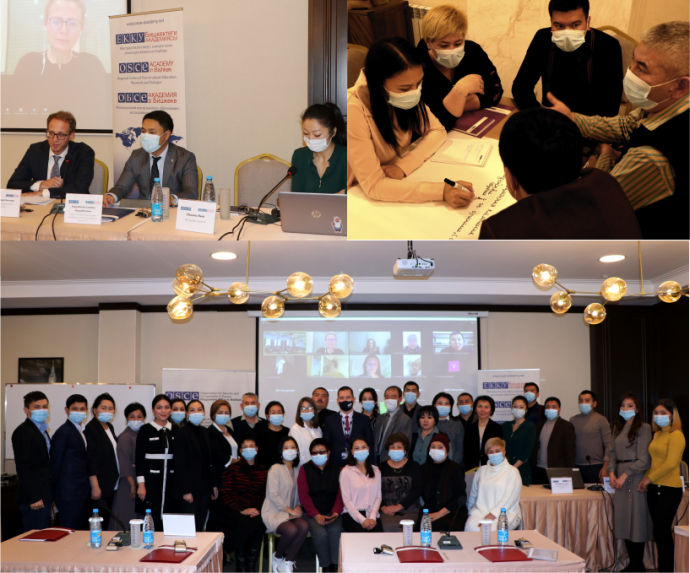News
Strengthening Youth Crime and Drug use Prevention through OSCE-Organized Workshop
On 9 December, the Transnational Threats Department and the Office of the Co-ordinator of OSCE Economic and Environmental Activities in co-operation with the OSCE Academy in Bishkek organized a national workshop on strengthening youth crime and drug use prevention in Bishkek.
The workshop was held in the framework of the new OSCE-wide and cross-dimensional project “Enhancing youth crime and drug use prevention through education on legality and awareness campaigns addressing threats of organized crime and corruption”. The project aims to prevent transnational organized crime, corruption and drug use, by complementing criminal justice efforts and promoting respect for the rule of law through education.
The workshop provided an opportunity to discuss youth initiatives on crime prevention, as well as main challenges and best practices among practitioners from government, civil society, higher education institutions and secondary schools. During the workshop, experts introduced the United Nations Office on Drugs and Crime Education4Justice and Global Programme on Prevention materials, which provide teachers, professors and civil society representatives with guidance on how to educate youth on the dangers of organized crime, corruption and drug use.
In his opening remarks, Deputy Minister of Culture, Information, Sports and Youth of the Kyrgyz Republic, Soyuzbek Nadirbekov, emphasized that the measures to fight youth crime should not be limited to the activities of law enforcement agencies, but involve a wide range of other institutions and actors, such as schools, to prevent the criminalization of youth.
Dr. Alexander Wolters, Director of the OSCE Academy in Bishkek, highlighted the unique place and role of education in transferring knowledge about the detrimental effects of organized crime and drug use to young people. He expressed his strong support for the project's collaborative effort to mobilize this resource.
Project managers Denise Mazzolani and Eni Gjergji emphasized that only through youth’s active participation in crime prevention efforts, lasting community resilience against organized crime, corruption and drug use can be built and sustained, and stability and security across the region ensured.
This workshop will be followed by an exercise at the beginning of January 2022, which will identify the needs of teachers, professors and civil society representatives to educate youth on preventing organized crime, corruption and drug use. Training-of-Trainers courses will be developed based on this assessment, using materials from the UNODC Education4Justice and Global Programme on Prevention.
This extra-budgetary cross-dimensional project is funded by Germany.



 Русская версия
Русская версия